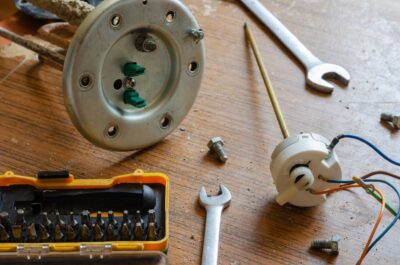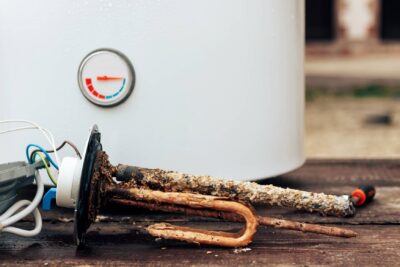How to Clean a Shower Head: A Complete Guide
Cleaning your shower head regularly is essential to maintaining good water flow, ensuring hygiene, and prolonging the life of your bathroom fixtures. Over time, mineral deposits, soap scum, and bacteria can build up in the shower head, leading to reduced water pressure and potentially harmful bacteria. This guide will walk you through the step-by-step process of cleaning your shower head, using both natural and commercial cleaning methods.
Why Cleaning Your Shower Head is Important
Before diving into the cleaning process, it’s important to understand why regular maintenance of your shower head is necessary:
- Improved Water Pressure: Mineral buildup, particularly in areas with hard water, can clog the nozzles of your shower head, reducing water pressure. Cleaning the shower head ensures optimal water flow and a more satisfying shower experience.
- Enhanced Hygiene: Shower heads can harbor bacteria and mold, especially in moist environments. Regular cleaning helps prevent the growth of harmful microorganisms, promoting a healthier shower environment.
- Increased Longevity: Regular maintenance can extend the lifespan of your shower head by preventing corrosion, wear, and tear caused by mineral deposits and other residues.
- Aesthetic Appeal: A clean shower head not only functions better but also looks better. Removing stains, grime, and limescale keeps your bathroom looking fresh and well-maintained.
Tools and Materials You’ll Need
Before starting, gather the following tools and materials:
- White vinegar
- Baking soda (optional)
- A plastic bag (large enough to fit over the shower head)
- Rubber bands or twist ties
- A toothbrush or soft-bristle brush
- A toothpick or needle (for cleaning nozzles)
- A soft cloth
- Commercial shower head cleaner (optional)
- Wrench (for detachable shower heads)
Step-by-Step Guide to Cleaning a Shower Head
1. Determine the Type of Shower Head
Start by identifying whether your shower head is fixed or detachable. Detachable shower heads are easier to clean since you can remove them from the wall, while fixed shower heads may require a different approach.
2. Prepare the Cleaning Solution
For a natural cleaning solution, fill a plastic bag with white vinegar. Vinegar is a mild acid that effectively dissolves mineral deposits, soap scum, and limescale.
If your shower head has significant buildup, you can enhance the cleaning power by adding a tablespoon of baking soda to the vinegar. The mixture will fizz, helping to break down stubborn deposits.
3. Attach the Bag to the Shower Head
For fixed shower heads:
- Secure the vinegar-filled bag around the shower head using rubber bands or twist ties. Ensure that the shower head is fully submerged in the vinegar solution.
- Leave the bag in place for at least 1-2 hours. For more stubborn buildup, you can leave it overnight.
For detachable shower heads:
- Remove the shower head using a wrench if necessary.
- Submerge the shower head in a bowl or container filled with vinegar or a vinegar-baking soda mixture.
- Let it soak for 1-2 hours or overnight for heavy deposits.
4. Scrub and Rinse the Shower Head
After soaking, remove the bag or take the shower head out of the vinegar solution.
- Use a toothbrush or soft-bristle brush to gently scrub the surface of the shower head, focusing on the nozzles where mineral deposits are most likely to accumulate.
- For nozzles that are still clogged, use a toothpick or needle to carefully dislodge any remaining debris.
Rinse the shower head thoroughly with warm water to remove any loosened deposits and vinegar residue.
5. Clean the Shower Head Exterior
For a shiny, streak-free finish:
- Wipe down the exterior of the shower head with a soft cloth dampened with vinegar.
- Buff the surface with a dry cloth to restore its original luster.
6. Reattach the Shower Head (if applicable)
If you removed the shower head, reattach it securely to the shower arm using a wrench. Be careful not to overtighten, as this can damage the shower head or the plumbing connections.
7. Flush the Shower Head
Turn on the water and let it run through the shower head for a few minutes. This will help flush out any remaining vinegar, debris, or loosened mineral deposits.
8. Regular Maintenance
To prevent future buildup and maintain optimal performance:
- Clean your shower head every few months, or more frequently if you live in an area with hard water.
- Consider using a water softener if mineral buildup is a recurring problem.
- Wipe down the shower head after each use to minimize soap scum and mineral deposits.
Using Commercial Cleaners
If you prefer not to use vinegar or have particularly stubborn deposits, commercial shower head cleaners are available. These products are formulated to dissolve mineral buildup and limescale quickly and effectively.
When using a commercial cleaner:
- Follow the manufacturer’s instructions carefully.
- Ensure proper ventilation in the bathroom.
- Rinse the shower head thoroughly after cleaning to remove any chemical residue.
Conclusion
Regularly cleaning your shower head is a simple yet essential task that can significantly improve your showering experience. By following these steps, you can ensure your shower head remains free from clogs, bacteria, and mineral buildup, providing you with a refreshing and hygienic shower every time. Whether you opt for natural cleaning methods or commercial products, consistent maintenance will keep your shower head in top condition for years to come.







